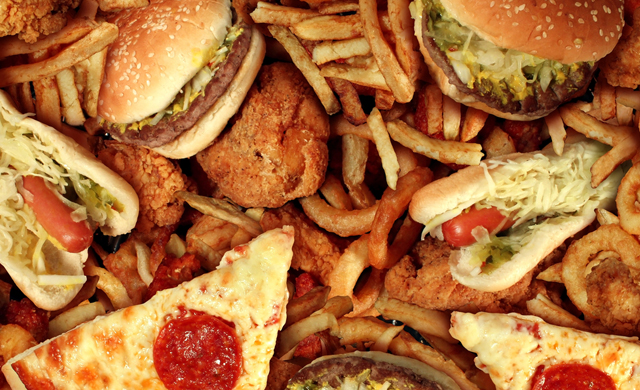
Why Our Latino Genes Don't Fit When It Comes To Fatty Foods
01/29/2016 11:37AM | 7266 viewsHispanics have the highest level of non-alcoholic fatty liver disease than whites or blacks no matter our diet. It's about genetics.
One of the best things about being Latino is our food. We are blessed by diverse cultures that produce some great dishes which are increasingly popular across the U.S. Sadly, the same thing that makes us Hispanic is what increases our chances of developing a potentially life-threatening disease when we enjoy of some of those high-calorie foods. I'm talking about genetics.
Following studies such as those conducted by the University of Southern California Childhood Obesity Research Center at the Keck School of Medicine in Los Angeles, we have learned that Hispanics are particularly susceptible to the accumulation of fat in the liver when we eat foods high in fats and carbohydrates.
Studies from the US Centers for Disease Control and Prevention (CDC) show that nearly four out of ten obese Hispanic children and adolescents have non-alcoholic fatty liver disease. The USC researchers found that Hispanic kids and adolescents are genetically predisposed to developing fatty liver disease when exposed to bad diets.
Let me explain fatty liver disease and why combating this is so important. It's when the liver - one of our most important organs - cannot break down fat. As a result fat accumulates in the liver, which causes inflammation and scar tissue; this is cirrhosis. If too much of the liver scars over and tissue cannot regrow, a person may end up needing a liver transplant.
The biggest risk factor for fatty liver disease is obesity, diabetes and all the problems that come with a high-calorie diet of fats and sugars. High sugary foods found in soda drinks and fried food leads to our inability to process these foods and this are what causes the problem.
This condition is quite common in Western countries—In fact, fatty liver disease not caused by alcohol accounts for 75 percent of chronic liver disease. Even so, Hispanics have higher levels of non-alcoholic fatty liver disease than Whites or Blacks.
The USC research studies published in Diabetes and the American Journal of Clinical Nutrition found that Hispanic children who carry the PNPLA3 gene have increased liver fat.
This does not mean that simply inheriting a gene like PNPLA3 dooms everyone to bad livers. It just means that we have to be more careful about our food selections starting at an early age:
-Avoid being overweight or obese, and talk to your doctor about how to help keep your children and teens at a good weight
-Limit the amount of high sugar, carbohydrates, and fatty foods you and your kids eat. Integrate fruits, vegetables and whole grains into your diet
-Make exercise a regular part of you and your child's life.
-Try to de-emphasize food as a reward at parties and place the emphasis on an activity or other non-food item like a gathering, book, or music.
-If you have symptoms like unexplained tiredness despite good rest or stomach discomfort, go see a doctor and get it checked out, as those are the common symptoms of fatty liver disease.
So next time you see a glass of Horchata, an order of papitas or are offered some flan, stop yourself. Our genes don't fit. Pun intended!










Post your Comment
Please login or sign up to comment
Comments